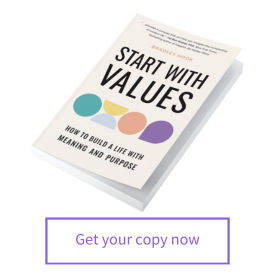Disappointment can feel heavy. It’s part of life, showing up in various forms—relationships, work, or even the unexpected turns of daily life. We all experience it, yet it has a way of shaking our foundations. The good news? Disappointment is also a teacher. With the right perspective and a few practical tools, we can move through it, even grow from it.
This guide offers insights and strategies to help you navigate disappointment with resilience and strength. Small changes in perspective and action can make a big difference.
Why Does Disappointment Hurt So Much?
Disappointment stems from unmet expectations. When reality doesn’t align with our hopes, it’s natural to feel a sense of loss. We’ve all felt it—the ache of something that didn’t turn out as we envisioned. But here’s the thing: disappointment is meant to make us pause. It’s our mind’s way of signaling that something important to us is off course.
Accepting this emotion as normal is the first step. Often, we resist feeling disappointed, seeing it as weakness. But accepting that it’s part of our human experience helps. Emotions are neither good nor bad. They just are. By observing these feelings without judging them, we give ourselves space to process them naturally. Acceptance and Commitment Therapy offers a practical framework for cognitive flexibility—and for moving forward.
How Can Different Perspectives Help Us?
Disappointment often arises when we view life through a narrow lens. Expanding our perspective can be liberating. When we actively listen to others, we gain insights beyond our own experiences. This doesn’t mean our feelings are invalid. It simply reminds us that there’s more than one way to interpret a situation.
Empathy bridges divides. It helps us see situations from multiple angles. Instead of merely reacting, we can respond thoughtfully. We’re reminded that others, too, carry their disappointments, victories, and struggles. By opening up to different viewpoints, we create room for growth and understanding.
What Should We Focus on When Things Feel Out of Control?
Often, disappointment stems from situations we can’t control. Ancient Stoic wisdom teaches us to focus on what lies within our control. This concept is liberating. We may not control the outcome, but we can always control our response.
Ask yourself: What can I influence here? Redirect energy toward actions that align with your values and goals. This shift helps reduce feelings of helplessness. It grounds us. Instead of dwelling on what we can’t change, we focus on what’s possible. This makes all the difference.
Can Adopting an Infinite Mindset Help?
An infinite mindset invites us to see life as a journey, not a series of conclusive moments. It’s about stepping back and viewing setbacks as small parts of a much larger picture. This outlook is freeing. It helps us realize that this one moment—this one disappointment—is not the entire story.
With this perspective, we stop looking for final wins or losses. We start valuing progress over perfection. Life is not a single event. It’s a long, winding journey. With an infinite mindset, setbacks become valuable experiences rather than defining moments. They’re part of the journey, not the destination.
What Practical Tools Can Help Us Move Forward?
1. Mindfulness
Mindfulness brings us back to the present. Often, disappointment roots itself in regrets over the past or worries about the future. By practicing mindfulness, we can simply observe our thoughts without being overwhelmed by them. Breathing exercises, short meditations, or a quiet five-minute pause in your day can make a difference. Active mindfulness practices, such as walking or spending time in nature, are also highly effective.
2. Gratitude
Gratitude shifts our perspective from scarcity to abundance. Instead of focusing on what went wrong, we recognize what’s going well. Try listing three things you’re grateful for each day. These don’t have to be grand—they could be as simple as the warmth of the sun or a kind word from a friend. This practice reorients us toward the positive.
3. Community
Connection is a powerful tool for resilience. We’re wired for community. Leaning on others when we’re disappointed helps lighten the load. Talking to someone who understands, or even joining a community group, fosters a sense of shared experience. We’re reminded that we’re not alone. This collective support can make all the difference.
4. Boundaries
Sometimes, disappointment comes from saying “yes” too often or giving more than we receive. Setting boundaries protects us from overextension. Boundaries help us maintain respect in relationships and prevent misunderstandings. They’re essential to moving forward without resentment. Another boundary to create is between yourself and information overload. Put away the phone and give yourself space to process and integrate your experience rather than becoming hypervigilant and always connected to the noise.
5. Self-Care
Self-care is not a luxury—it’s foundational to resilience. Exercise, proper nutrition, and good sleep strengthen both body and mind. Equally important is dedicating time to activities that bring joy or relaxation. Self-care helps restore balance and provides energy to face new challenges with clarity.
6. Reconnect with your Values
In times of disappointment, starting with values serves as an anchor. Start by reflecting on your disappointment. Ask yourself: What value of mine was affected here? Perhaps a feeling of fairness was disrupted, or maybe respect felt compromised. Identify the values that connect with the experience. Next, think about one small action you can take to honor that value, whether it’s speaking kindly, setting a healthy boundary, or simply choosing patience.
How Do We Build Hope for the Future?
Disappointment, while painful, doesn’t have to lead to despair. Building hope is about small, consistent actions. Set small, achievable goals for yourself. Breaking larger dreams into smaller steps keeps progress manageable and rewarding. Each accomplishment, however minor, rekindles hope. It reminds us that we’re moving forward.
Optimism doesn’t mean ignoring life’s difficulties. It’s about believing in our ability to adapt and overcome. Recognizing even the smallest achievements helps sustain this hope.
How Can We See the Bigger Picture?
Sometimes, disappointment feels overwhelming because we’re too close to the situation. Stepping back, we remember that this moment is just a small part of our lives. Our lives are brief in the grand timeline of the universe. This perspective helps us let go of the immediate sting and focus on the larger journey.
This outlook doesn’t diminish the experience. It helps us see it as part of a broader path. The journey is short. Each experience, whether joyful or disappointing, becomes part of our story. Embracing this view allows us to navigate life with a sense of calm and resolve.
How Can We Turn Disappointment Into Growth?
Disappointment can be a powerful catalyst for growth. It provides insight, showing us what we value, what we need, and where we might want to adjust our expectations. Each setback offers an opportunity to grow. When we reflect on our disappointments, we find the strength to make changes that align with our values.
By practicing mindfulness, embracing diverse perspectives, and focusing on what’s within our control, we build resilience. These practices don’t eliminate disappointment but allow us to face it with courage and wisdom.
In life’s ever-changing journey, disappointment will visit us. But it doesn’t have to define us. Instead, it can strengthen our resolve, deepen our understanding, and guide us toward a life lived with intention. Each setback can be a stepping stone—a chance to move forward with renewed hope and purpose.
✨ Start With Values
Receive $400 of bonus resources with any order of my new book,Start With Values (Penguin Random House).
Written by : Brad Hook
Brad Hook is a writer, podcaster, speaker and entrepreneur. He helps individuals and teams achieve sustainable high performance through inspiring workshops and a powerful suite of digital tools. Discover his new book, Start With Values (Penguin Random House), — available now!
Stay connected with Brad
BE NOTIFIED ABOUT EVENTS and receive the latest tools and tips first
We will never share your email with others.







